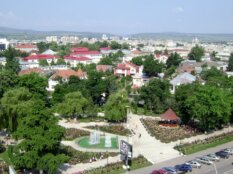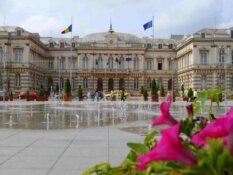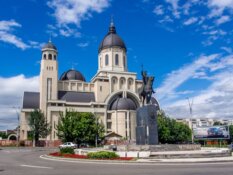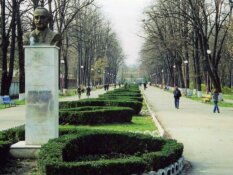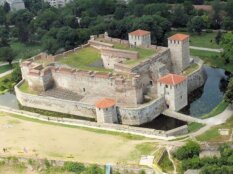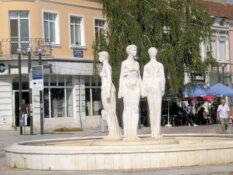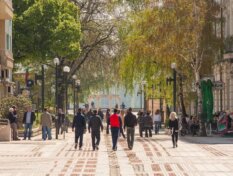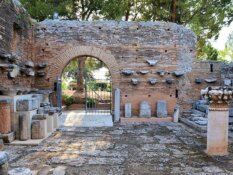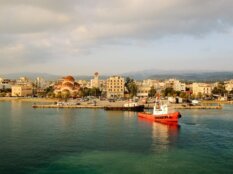Located in the heart of EU member state Romania, the city of Bacau is the county seat for Bacau County. It is approximately 4 hours from Bucharest by train or car. The local geography and topography are varied and picturesque with the Eastern Carpathians and hilly regions washed by the Bistrita, Trotus, Siret, Tazlau, Casin and Slanic Rivers. Full of wonderful valleys and rich flora, it is an important tourist destination because of its diverse natural landscapes, historic monuments, art and significant historic architecture, especially houses.
The city is friendly, modern and inexpensive. Good restaurants, modern grocery stores, coffee shops and Internet cafes are all within a five-minute walk from the rehearsal hall and Institute hotel. For those who can’t survive without fast food, MacDonald’s, Pizza Hut and KFC are about 10-15 minutes on foot. The Institute reserves a private coach for student conductors to take them from Otopeni Airport in Bucharest to Bacau and the return to Otopeni at the end of the course.
Vidin is in northwest Bulgaria on the banks of the Danube River at the Romanian border. Situated 200 km from Sofia and about 25 km from the Serbian border, it is one of the oldest cities in Bulgaria with a rich history that dates to the 1stcentury CE. Vidin serves as the administrative, cultural and economic center for the surrounding region, and the city’s many museums, historical sites and varied architecture are reflective of its uniquely varied cultural heritage. The “Metropolitan Christian Complex’’ includes the Synagogue, Osman Pazvantoglu Mosque, and St. Pantaleimon Church. They stand as a testament to Vidin’slong-standing tradition of religious tolerance.
Visitors to Vidin typically find its residents more open and hospitable than those in larger cities like Sofia, and it is one of the safest cities in Bulgaria. It possesses an unusual blend of small town (population 120,000) charm and a cosmopolitan atmosphere due its location on the Romanian border, its proximity to Serbia and past occupations by the Romans and Ottoman Turks. Food and lodgings are comparatively inexpensive due to the favorable exchange rate between the Bulgarian lev and the US dollar and Euro, and there are plenty of dining choices at restaurants and cafes both in the city center and Danube River Park.
Located in northern Corinth on the shores of the Gulf of Corinith, Kiato is the seat of the Municipality of Sikyona. Now a popular summer vacation spot, the town was known as a center for commerce for most of the 20th century, and its harbor was once home to a sizable fishing fleet. The coastal plain and hills surrounding Kiato are blessed with fertile soil that offers ideal growing conditions for olives, oranges, lemons, apricots and grapes.
The ancient city of Sikyon is among the oldest archaeological sites in all of Greece. Located five km to the southeast, it was first inhabited during the Prehistoric era and enjoyed great prosperity in the 7th and 6th centuries, b.c.e. Ancient Corinth and the fabled Apollo Temple are close by as well. With mostly sunny summer days, the warm, inviting waters of the Mediterranean and easy access from the Athens Airport via commuter rail, Kiato is the ideal location for the Prelude Conducting Academy.

